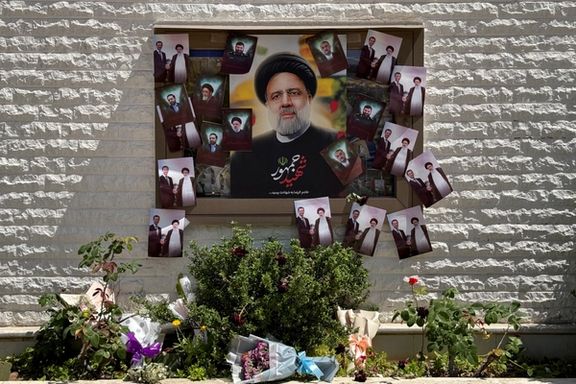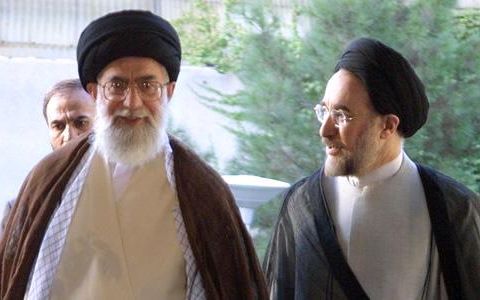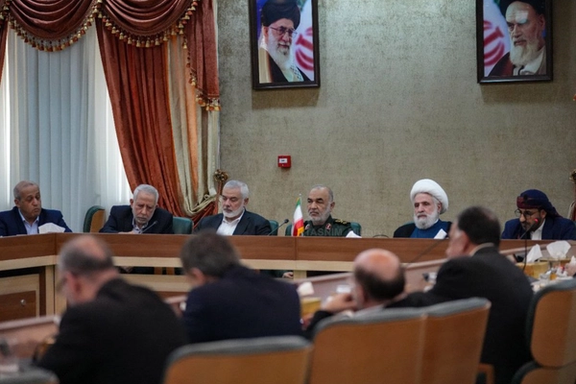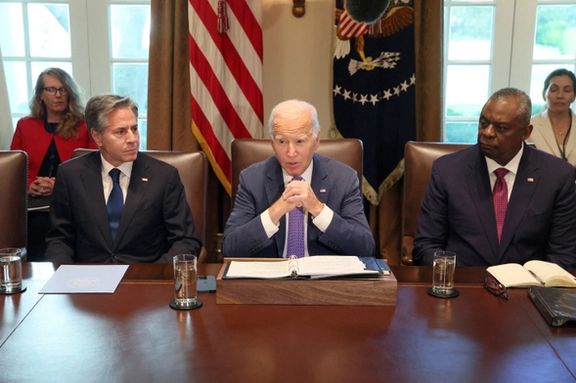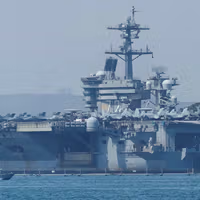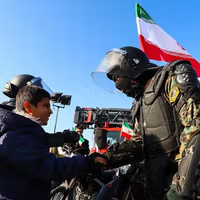IRGC Chief Commander Hossein Salami and Quds Force Chief Esmaeil Qa’ani met with the leaders and representatives of Hamas, Hezbollah, Palestinian Islamic Jihad, PFLP, Ansarullah (Houthis), and Iraqi Shia militant groups.
“Raisi's body was in the next room when they were talking,” Beni Sabti, a researcher in the Iran program at the Institute for National Security Studies (INSS) think tank, told Iran International. He used to serve as Persian spokesman for the Israeli government on Iranian issues.
The timing of the meeting speaks volumes, according to Sabti who believes it was partly propaganda to save face.
"Even (Syrian President) Bashar al-Assad didn't come. Even (Russian President Vladimir) Putin didn't come. So they had to meet someone. They had to produce this picture that we are acceptable. We have legitimacy in the Middle East and who they had?...The head of terrorist organizations," said Sabti.
During the meeting, the participants “reviewed the latest regional developments and emphasized the continuation of jihad until victory in Gaza is achieved,” according to IRGC-affiliated media outlets.
‘Iran's late foreign minister the chain to terror proxies’
"There’s a more important thing about this meeting: It was not about Raisi, it was about the foreign minister, [Hossein] Amir-Abdollahian."
Sabti called the late Iranian foreign minister the link between the Islamic Republic and their proxies in the Middle East.
"Most of us talk about Raisi, the president, but Raisi was the less important guy in that helicopter, or maybe in the whole foreign policy issues. For Iran, the main guy there was Amir-Abdollahian because he was a link and part of the chain. A chain from the Iran regime to these terror organizations," said Sabti.
Amir-Abdollahian had attended the inauguration of two dams near the border with Azerbaijan where Raisi met its president Ilham Aliyev, hours before the fatal helicopter crash.
On Feb. 9, the late foreign minister was in Beirut to show the Islamic Republic's support for Iran-backed Hezbollah, saying Lebanon's security affects Iran and the greater region. He was also welcomed by Hamas and the Palestinian Islamic Jihad.
On Feb. 13, Amir-Abdollahian met with the Hamas leader in Doha, Qatar, and reaffirmed Iran's support.
Despite Iran's denial of involvement in the October 7 massacre that killed nearly 1,200 mostly civilians, Tehran continued its public meetings with the leaders of these proxy groups.
Iran supports Hamas with $1 billion a year. The Islamic Republic also supports Palestinian Islamic Jihad with tens of millions and is providing Hezbollah with 70 percent of its budget, Sarit Zehavi from Alma Research Center said in a previous interview with Iran International.
Sabti said Amir-Abdollahian was successful at meeting with Middle Eastern countries that normalized relations with Israel through the Abraham Accords, willing to put aside ideology he said, for the sake of "destroying the relations between Israel and other countries."
"They put the ideology aside, and I don't know how Iran regime somehow convinced Taliban and Hamas, both of whom are Sunnis and from the Islamic Brotherhood. But somehow they all gathered around the same interests and they put the ideology aside," said Sabti.
He believes Wednesday's meeting between Iran and its proxies was a check-in on how to "continue Amir-Abdollahian's role and also to show them that the Iran regime is behind them. They will support them no matter that Amir-Abdollahian is there or not."
Selsky: A wake up call to the West
If a picture is worth a thousand words, the photo of Iran with its terror proxies, showed "how close they all are," said Alex Selsky, an advisor to the Middle East Forum and former advisor to Israeli Prime Minister Benjamin Netanyahu.
Selsky said the meeting shows the Iran-backed terror groups are "the soldiers of this [Iran] regime."
"They all came to show their loyalty and to mourn together with the ‘family’. So it just shows us how close all of them are," said Selsky.
Selsky said the photo should be a “wake-up call to the West.”
"I don't remember if we ever saw such a picture that shows visually that it's all one desk. It's all one headquarter. It's all one mission," he said.
"That proves, again and again, to the West...to the world. That's when they want to fight economic terror by Houthis. Or the terror by Hezbollah or Hamas. Who is the head? Who is the one that sends and gives the orders? And who is the one to be targeted? And if the West still doesn't understand it....yesterday is already late," said Selsky, referring to Iran as the head who executes all the orders and finances its proxies.
Selsky, an expert in the Middle East, believes the fatal chopper crash, whatever the cause, reflects poorly on the Islamic Republic and has likely impacted how much confidence its proxies have in their so-called "boss."
"I'm sure that many of the proxies look at their ‘boss’ right now and feel kind of disappointment."
"Any explanation to this accident," he said, "is bad for them [Iran]. Because if it was assassination by whoever did it, it shows the weakness. If the assassination comes from outside, it shows the weakness. If the assassination comes from inside, it shows the weakness and the splits and the rivalry within. If it was just an accident, it shows the weakness. Like they want to fight America and Israel? And they don't know to how to operate an old, small helicopter."
Iran's military chief of staff has ordered a probe into the cause of the helicopter crash, according to the ISNA news agency. However, a cause has yet to be determined.
